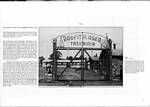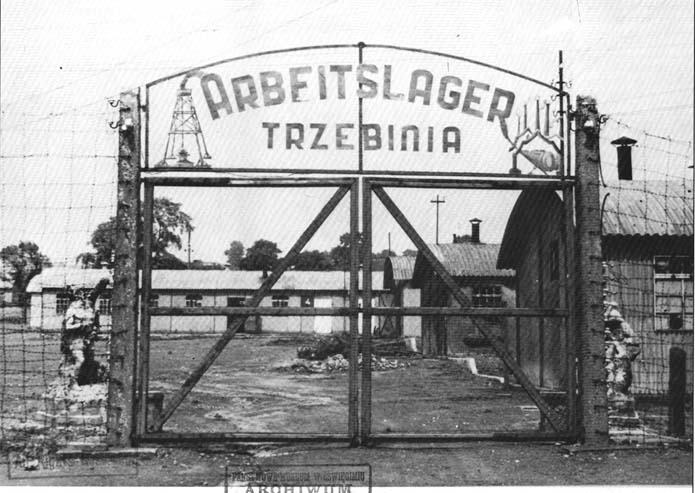|
|
 |
 |
AUSCHWITZ:
Technique
and Operation
of
the Gas Chambers © |
|
|
| |
 |
Back |
 |
Contents |
Page 115 |
 |
Home
Page |
Forward |
 |
| |
| The cremation furnace at the TRZEBINIA
labor camp |
| |
| [Most of the information in this note is taken from the
study by Doctor Franciszck PIPER, entitled "Das Nebenlager
Trzebinia" [The Trzebinia subcamp] published in "Auschwitz
Notebooks" No. 16, PMO Publications 1978, pages 93 to 135.] |
| |
The Trzebinia labor camp "Arbeitslager",
abbreviated to "AL"][Photo 4] was located 24 kilometers
northeast of Auschwitz and was established in August 1944 to provide labor for
an oil refinery, the "Trzebinia Erdöl Raffinerie GmbH". The huts
had been built in 1942 to house Belgian workers employed on building the
refinery and, having subsequently been occupied by British prisoners of war at
the end of 1943, they were surrounded by a barbed wire fence. Then in August
1944, the Monowitz camp [also referred to as KL Auschwitz III] detached a
number of SS and prisoners (virtually all Hungarian and Polish Jews) to
Trzebinia, the latter to work on extending the refinery. There were a little
over 800 prisoners in the camp in September 1944, with about twenty SS to guard
them. This figure had fallen to 650 by the first half of January 1945.
The bodies of any prisoners who died were normally taken by truck to
Birkenau to be cremated there, but Himmler's order of 26th November 1944 to
destroy Birkenau Krematorien II and III is thought to have led the SS to
install a cremation furnace directly at AL Trzebinia itself. The subcamp was
therefore equipped very late, at the end of November 1944. with an oil-fired
"mobile" furnace manufactured by H Kori of Berlin. The two similar
furnaces used in 1942 in the Majdanek camp, had to be abandoned because of a
lack of fuel oil, but there was no such problem at Trzebinia, where the
refinery could in theory provide all the fuel required. However the real reason
for the installation of the furnace remains unknown, for the evidence of a
resident of Trzebinia and a corpse transport authorization indicate that the
furnace was installed and started work in the second fortnight of November
1944, while Himmler's order was dated the 26th. This would
imply that the order could not after all be the reason for the decision to have
a crematorium at Trzebinia, and the real reason remains a mystery. |
| |
| |
| Photo 4 |
 |
| |
Photo 4
[PMO neg. no.
6677] |
| |
| Entrance gate to the Trzebinia labor camp in 1945, looking
south/north. The camp comprised six huts, a workshop, a rabbit run, a latrine
hut and a crematorium, surrounded by a barbed wire fence and overlooked by four
watchtowers. On the photo, to the right of the gate is hut 1, occupied by the
SS, with the prisoner accommodation huts 2, 3 and 4 (in the background) beyond
it. Behind hut 4 it is possible to see the back of hut 5, used as a hospital.
On the left of the entrance, not visible in the photo, was hut 6, more prisoner
accommodation. |
|
| |
AUSCHWITZ:
Technique and operation
of the gas
chambers
Jean-Claude Pressac
© 1989, The Beate Klarsfeld Foundation |
 |
Back |
Page 115 |
Forward |
 |
|

